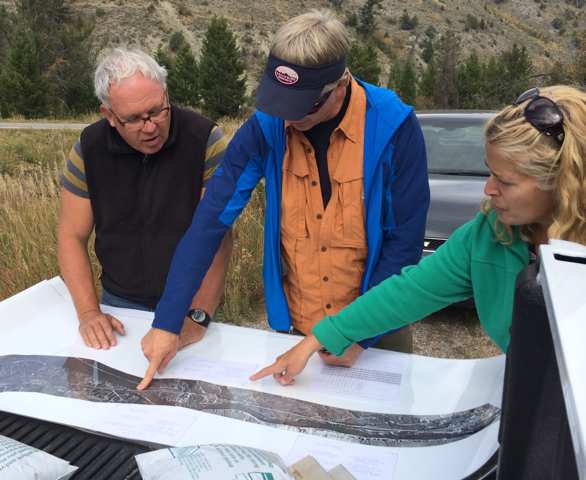
The Northern Rockies are home to the greatest diversity of large carnivores and hoofed mammals in the United States, including grizzly bears, lynx, wolverines, elk, bighorn sheep, bison and moose. Western states have been in the process of identifying corridors and crucial habitats for these and other animals, but with little concern for the impact of climate change on these habitats and corridors. The Center for Large Landscape Conservation stepped in to develop the Wild Passages project, which aims to ensure that the region’s ecological network endures in a changing landscape for the benefit of future generations of humans and wildlife.
The Wild Passages project assesses the vulnerability of critical wildlife corridors to major threats, such as roads, land use and climate change, in order to identify those most in need of conservation action. CLLC collected data about the nature and severity of these threats across the landscape and identified important corridors at risk, and in danger of being at risk, and shared the findings of its assessments so that management conservation actions can be implemented. The Wild Passages project helps ensure that the Northern Rocky Mountain region and its native wildlife populations, its ecological processes and its amenities remain intact in the face of change.
The Center for Large Landscape Conservation addresses nature’s large-scale challenges like habitat fragmentations, climate change and the loss of vital goods and services provided by healthy ecosystems. Working on the local, state, regional and national levels, CLLC acts as a convener by connecting ideas, individuals and institutions; as a researcher by providing scientific information to policy-makers to promote good stewardship of natural resources; and as an advisor by generating strategies and cooperation to advance trans-boundary conservation. CCLC effectively works with researchers, agencies and nonprofits to include climate change considerations into wildlife corridor planning.
The Murdock Trust is proud to support the great work of CLLC, and especially the Wild Passages project, which is vitally important to future generations of wildlife, humans and our environment.







